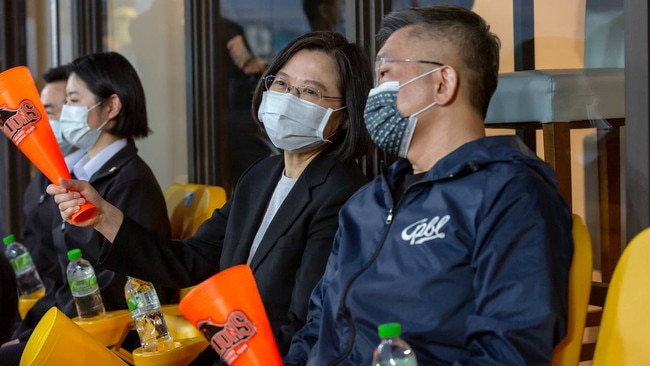Russia, China attack Biden’s democracy summit
The Moscow and Beijing envoys in America also mock crackdowns on Covid-19 protesters in Europe and Australia.

The Russian and Chinese ambassadors to the US have lashed out at President Joe Biden’s upcoming democracy summit and mocked crackdowns on Covid-19 protesters in Europe and Australia.
In a rare, jointly written article, Chinese ambassador Qin Gang and Russia’s Anatoly Antonov have criticised US efforts to champion democracy as a “product of its Cold War mentality” and undermining international law.
“This will stoke up ideological confrontation and a rift in the world, creating new dividing lines. This trend contradicts the development of the modern world,” the two ambassadors said, writing in the National Interest, a conservative US foreign affairs magazine, at the weekend.
“Democracy is not a prerogative of a certain country or a group of countries, but a universal right of all peoples. It can be realised in multiple ways, and no model can fit all countries.”
The comments, which will inflame already tense relations between the three nations, come ahead of a virtual democracy summit to be hosted by the White House on December 9-10, to which China and Russia have not been invited. The summit was a campaign pledge by the US President to encourage and bolster democrat development in the face of the growing threat of autocratic regimes, a common refrain in Mr Biden’s statements. “Democracy doesn’t happen by accident. We have to defend it, fight for it, strengthen it, renew it,” he said in February, announcing the summit, to which 110 nations have been invited including Taiwan and Australia.
Mr Biden held a three-hour virtual meeting with Chinese President Xi Jinping earlier this month that failed to resolve longstanding trade and political disputes between the two superpowers, especially over democratic Taiwan, which China has long determined to restore to Beijing’s control. Mr Biden has also been at loggerheads with Russian President Vladimir Putin over Russian designs on Ukraine, and Russia’s tolerance of repeated ransomware attacks on US businesses.
Tensions spilled over into a fresh round of provocative Chinese military exercises near Taiwan over the weekend that coincided with a meeting between a US congressional delegation and Taiwanese President Tsai Ing-wen. China’s foreign ministry expressed Beijing’s “firm opposition” to the US politicians’ visit, the second by members of congress to the island this month. “This is a necessary measure in response to the current situation in the Taiwan Strait,” it added, pledging the army would “protect sovereignty and territorial integrity of the nation”.
Led by Mark Takano, chairman of the house committee on veterans’ affairs, the delegation was a show of political support for an issue on which there is cross-party consensus in the US. “Taiwan will continue to step up co-operation with the United States in order to uphold our shared values of freedom and democracy, and to ensure peace and stability in the region,” Ms Tsai said.
The ambassadors’ article pointedly criticised Mr Biden’s repeated calls for a “rules-based international order”, a demand voiced often by the Australian government too, as going “against the UN charter and other basic norms of international law”.
They also took a swipe at governments’ handling of protests against Covid restrictions, which have erupted again in Europe and Australia in response to new restrictions, or fear of them, to curb fresh waves of infections, including from the new Omicron variant.
“Is it freedom when various rallies in their countries are dispersed with rubber bullets and teargas? It does not look very much like freedom,” they said.
The article included a lengthy defence of the Russian and Chinese political systems, calling the latter an “extensive, whole-process socialist democracy (which) reflects the people’s will, suits the country’s realities, and enjoys strong support from the people.”
Russia, where Mr Putin signed a law in April giving him the scope to remain in power until 2036, was a “democratic federative law-governed state with a republican form of government”, they argued. “There is no need to worry about democracy in Russia and China.”




To join the conversation, please log in. Don't have an account? Register
Join the conversation, you are commenting as Logout